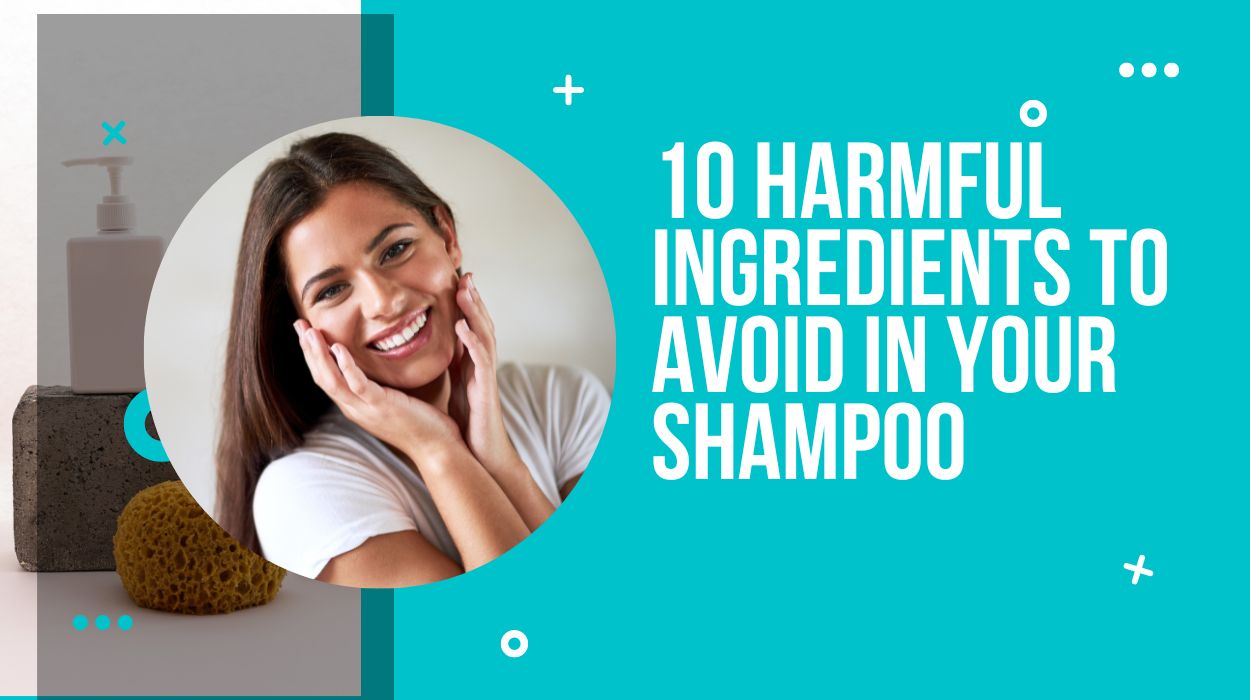Are you worried about your constant hair fall and other hair problems? Then, rush to your bathroom and grab your Shampoo. Please take a look at all the ingredients present in it. You will realize that you are pouring harsh chemicals on your hair every day.
Our hair is our soul. We aim to make our hair healthy and lustrous. The Shampoo we use plays a vital role in this. Today, all those Shampoos and conditioners available in our next store contain many harmful chemical ingredients. So, it is best to check the ingredients or opt for an organic Shampoo.
This article helps you learn about the ingredients that must be avoided in a shampoo, ingredients to be kept, and the benefits of using organic Shampoo.
Come, Let’s Discuss the ‘Bad’ Ingredients
1. Sulfates
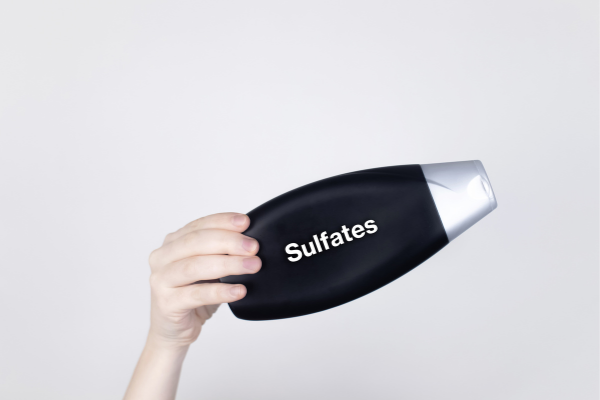
Sulfates are those fellows who are used as cleansing agents in our households, especially in detergents, soaps, and cleaners. They are also used in Shampoos. Sulfates are used for their lather-making property.
The two commonly used sulfates in Shampoo are;
1. Ammonium Lauryl Sulfate or Sodium Laureth Sulfate (SLES)
Ammonium Lauryl Sulfate is usually used as a foaming agent. It is also used in toothpaste and cleansing agents.
ALS can create nitrosamines (carcinogens that can cause cancer in different parts of our body, especially in the liver, lungs, kidney, stomach). It is found to damage the skin’s immune system.
Moderate to severe eye irritation is caused by using Shampoos made with ALS. ALS is very harmful to children and animals, so make sure to keep it away from them.
2. Sodium Lauryl Sulfate(SLS)
It is most commonly used in shampoos as it is a ‘surfactant’ (a surfactant reduces the surface tension between the ingredients and removes dirt and impurities).
SLS is an irritant that irritates the skin.
Why are Sulfates Harmful?
Our hair contains a natural amount of oil and moisture content in it. But, continuous use of Shampoos rich in sulfates wipes away too much moisture and makes our scalp dry.
2. Parabens

Parabens are used as preservatives in Shampoos to prevent the growth of bacteria and fungus and for long shelf life.
The high use of parabens can make our scalp brittle and dry. It also causes rashes and an itchy scalp, leading to hair fall.
3. Sodium Chloride
Sodium Chloride is used as a thickening agent in Shampoo. If you have done a keratin treatment to your hair, it is advised not to use Shampoos rich in sodium chloride as it takes away the keratin from your hair.
It makes your hair dry and also creates irritation to your eyes.
4. Polyethylene Glycols (PEG)
PEGs are petrol derivatives used as solvents, softeners, thickeners, and moisture carriers. It is commonly used as cream bases.
PEGs contain ethylene oxide, which is a human carcinogen.
5. Formaldehyde
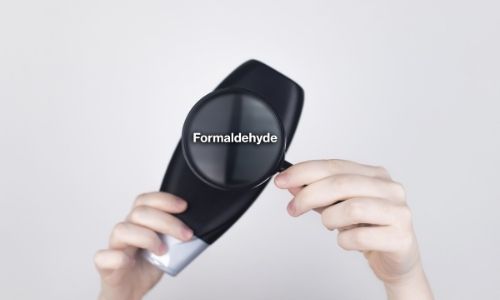
Formaldehyde is mainly used as a preservative in shampoos. It is a strong irritant and a human carcinogen. It is a common allergen in many cosmetics. Overexposure to formaldehyde can cause allergic contact dermatitis or contact eczema (a skin rash caused by an allergic reaction) in formaldehyde-sensitive people.
6. Triclosan
Formaldehyde is an endocrine disrupter that alters the effect or production of hormones. It is an antibacterial agent added as a preservative. Numerous side effects are associated with formaldehyde, including weight loss and uncontrolled cellular production.
Triclosan has a high absorption capacity. Triclosan exposure mainly comes by absorption through the skin or the lining of the mouth. Scientific studies have found the content of triclosan in blood, milk, and plasma, which is considered to cause various diseases.
Triclosan was banned in antibacterial soaps in 2016 by FDA (Food and Drug Administration) because of its health risks.
7. Perfume
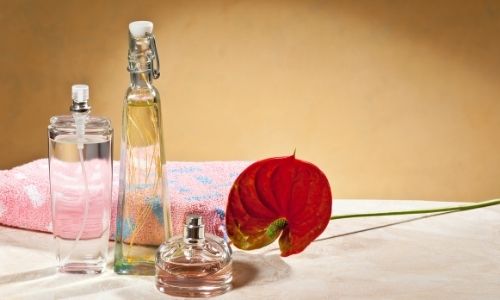
There is no natural added fragrance in shampoos. Synthetic fragrances have many chemicals like sulfates and parabens in them. All are chemical fragrances that can irritate the scalp and cause hair loss.
Artificial fragrances can cause cancer, reproductive problems, and breathing difficulties. It also makes our hair dry and frizzy and takes a long time to smoothen and detangle.
Some people can’t tolerate these shampoos’ thick and intense smell, which leads to breathing and allergic problems, especially for older people.
8. Phthalates
Companies use Phthalates to increase the spreading and sticking of shampoos to our hair scalp. They penetrate deeply into our scalp and do not wash off quickly.
Phthalates are also used to give a longer fragrance to the product so that its fragrance remains for many days after wash. Phthalates’ strong fragrance can cause breathing difficulties and allergy problems.
Phthalates disrupt our endocrine system resulting in hormonal changes in human beings. It mainly affects the reproductive system. Early puberty in girls and low sperm count in males is because of phthalates. Fertility problems in males can lead to ‘testes cancer.’
One of the major issues is that Phthalate is an environmental pollutant. Phthalates are used in plastics manufacturing to make them durable and flexible. The concentration of phthalates is found in soil, drinking water, sewage sludge, and rivers. These ingredients reach our environment through leaching (by water) and oxidation (through the air).
9. Dimethicone
![]()
Dimethicone acts as a protective layer to our hair. It is used in shampoos to give our hair a smoothing and slippery effect. Dimethicone comes under the group of silicons.
But, Dimethicone has serious side effects. Over time many residues get grouped up on our scalp. These create allergic reactions and other scalp-related problems like itching, burning, redness, and rashes in our hair.
10. Colors
There is a wide variety of shampoos and conditioners with a spectrum of colors in the market. These are artificially added colors from coal and petroleum derivatives.
These can cause chemical deposits in our hair and make our hair dry.
Ingredients that are ‘Welcomed.’
- Different people have different hair types and textures. We must first know our hair and research which ingredients to keep and avoid.
- Always use a sulfate-free shampoo for healthy hair. You can use shampoos with mild surfactants.
- Oils are the best hacks for your hair. It can also reduce the dryness and roughness of your hair. Check for oils like coconut oil, olive oil, and jojoba oil in your shampoos and conditioners to nourish your hair.
- For damaged hair, you can use conditioners with hydrolyzed keratin. Mango butter and shea butter shine your hair and protect your hair. Shampoos with Vitamin E and Argan Oil help to condition your hair.
Why Organic Shampoo?
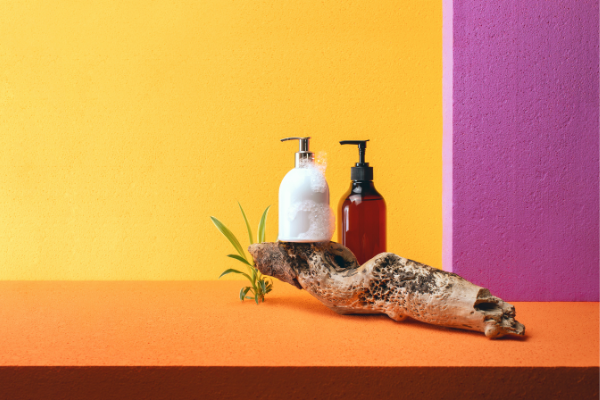
- Organic shampoos are derived from nature and natural products. It works on the long preserved techniques of Ayurveda. Maybe we won’t get instant results, but we will get the best result- healthy and nourished hair.
- Most chemical shampoos take away the moisture content along with the oil and dirt from our scalp. But organic shampoos keep the moisture present on our hair and prevent our scalp from drying out.
- Organic shampoos do not contain chemicals or artificial ingredients that irritate our hair and scalp. The ingredients in an organic shampoo give our hair coolness and nourish our hair from its roots. It helps from dandruff, dryness, and other issues which come while using a chemical shampoo.
- Organic shampoos maintain the pH level on our scalp.
- Organic shampoos are made from herbal plants. The whole plant serves this purpose from its roots to the tips. Oils made from herbal plants are also beneficial for hair growth and other hair fall problems. Our neighborhood contains so many herbal plants like bringhraj, amla, hibiscus, and so many others, making it easier to access them and make organic shampoos and oils at home at a low cost.
- Organic shampoos can be used daily, unlike chemical shampoos, which give extra nourishment to our hair.
- We can’t say that all herbal shampoos suit people. Some herbs present in organic shampoos can cause allergic reactions. So, always check the ingredients present in a herbal shampoo and choose according to your hair type and health.
- The most important feature of using an organic shampoo is biodegradable. It does not cause harm to our environment, which is not like the chemical shampoos which penetrate deep into our earth.
FAQs
1. Which is the best Shampoo in the market?
One can’t honestly say which Shampoo is the best in the market. Research your hair type and which Shampoo is suitable for your hair. Always use sulfate-free shampoos or organic shampoos.
2. Are organic shampoos allergic?
Some herbs are allergic to certain people. Make a study on all the herbs added in the Shampoo or oil and use according to it because your health is what matters.
You May Also Like To Read:
How to Wash Your Hair with Shampoo?
How to Get Rid of Frizzy Hair?
How to do Hair Spa at Home in 4 Easy Steps?
Summing Up
Today, different companies manufacture shampoos that are highly rich in chemical ingredients. These ingredients provide charm to the shampoos but not to our hair. They are highly toxic to our hair and health.
These chemicals in shampoos invite many hair problems like hair fall, dandruff, itchy scalp, irritation, and diseases like breathing problems and allergies.
The use of organic shampoos rich in herbal properties can help cope with hair problems to a great extent. It is easily accessible, budget-friendly, and can be made at home.
We must know our hair, always check the ingredients present in Shampoo, choose the Shampoo of our hair type, and have to apply it for healthy hair.
Drop your queries and suggestions about different types of Shampoo, ingredients to avoid in a shampoo, ingredients to keep, organic Shampoo, effects on health, and finding your hair type in the comment section below.

